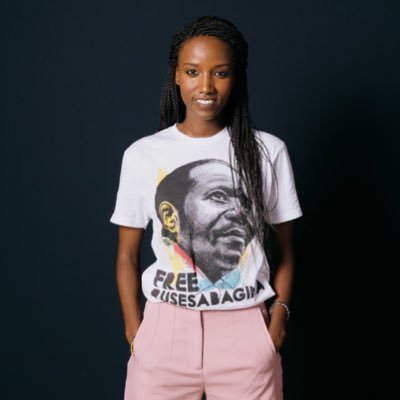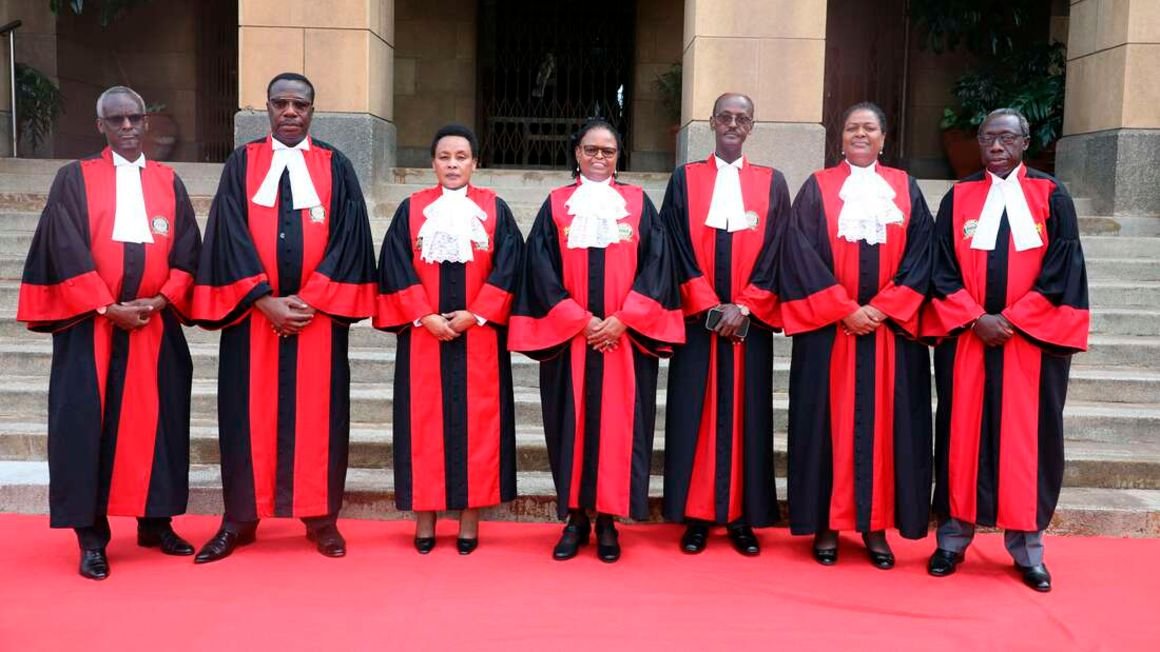Optinion
Why would Africans appoint hyenas to save God’s sheep?

East African armies gather in Bujumbura during the 11th EAC Military Games and Cultural Event, 2017
The logic of seeking
interventions from overseas was always misguided. We are still reluctant to conclude
that we are the saviors we have been waiting for.
The government of Democratic Republic of Congo has
finally signed a
troop deployment deal with the East African community (EAC). This is an
important development at a time where Africans search for a sensible existence
without seeking interventions from overseas to solve internal conflicts. It is
crucial to underscore once again that the logic of seeking interventions from
overseas was always misguided, and here is why.
Right from the beginning as African countries started
getting independence, ill-intentioned “interventions” from overseas created
mayhem on the continent. For instance, Washington and Brussels decided that
they did not like the way Prime Minister Patrice Lumumba professed to manage
the newly independent Congo and decided to depose him, kill him and replace him
with their choice, Mobutu Sese Seko, who soon turned governance into a
despicable circus. Understandably, the rest of Africa, which was not yet
independent anyway, couldn’t do much about it.
Foreign meddling into the affairs of newly independent
African states continued as soon as each got independence as they were expected
to subscribe either to Western capitalism or Eastern socialism, even though the
conditions that had caused the rising of the two ideologies did not exist in
Africa. Later, after the fall of the Soviet Union in the late 1990s, western
powers arrogated themselves the role of deciding which government in Africa,
and around the world, was on course with pursuing democracy and would not
hesitate to sponsor “interventions” to keep the countries “on course”. Indeed,
most coups against real and perceived dictators in Africa were engineered from
beyond the continent and even the seemingly nobler interventions were not
homegrown.
In fact, these interventions from overseas have largely
been disastrous, as was the case in Somalia. The interventions did not spare
even those countries that got independence much later like Angola and
Mozambique. Usually, they took the form of sponsoring local dissidents to
undermine the new governments, keeping them unstable and constantly engaged in
civil war.
On contrary, almost all joint interventions by African
states in African conflicts have proved successful. So, why do we expect the
spreaders of the disease to cure it? Perhaps the answer to this question lies
in our inability to preserve memory and learn from the past. Some hazardous
aspects of our history have been told and retold, yet we keep ignoring the
lessons they carry and we are still reluctant to conclude that we are the
saviors we have been waiting for. We may thus fail to take necessary measures
as Africans not only to prevent disruptive foreign interference but more
importantly to cure and immunize our countries from perpetuation of senseless
destruction and the wastage of resources and lives.
It is of common knowledge now that, by the end of the
colonial era, enough dangerous seeds had been sown in African territories to
make citizens of each country turn onto one another in senseless killings to
the extent of making people wish for the return of the colonial masters.
Cheap but effective tricks employed by the colonialists included the reduction
of indigenous communities to derogatory classification of ‘tribes’ and
persuading each that they were fundamentally enemies of others. The foreign
religions were also used to further divide –and of course weaken- the Africans.
Not surprisingly, many African countries descended into
civil wars after independence. And even the older, uncolonised Ethiopia copied
the bad ways. Today, brothers and sisters are slaughtering one another in the
bloodletting that started soon after Prime Minister Abiy was decorated with the
Nobel Peace Prize. These endless conflicts are a stain on our conscience, but
somehow we have resigned ourselves to a bystander role, waiting for some
miracle to happen or others to put out the fires. Yet, the dangers of this
attitude and the level of destruction it has caused are there for all to see.
It is a repetitive pain to keep citing the sad example of
the Democratic Republic of Congo. But DRC is such a huge elephant in a small
room that is impossible to ignore. DRC presents the limitability of
effectiveness of foreign intervention from outside the continent. For the
United Nations ‘peace’ intervention in DRC is about the biggest and most
expensive and ineffective in the world. It would be interesting to read the
UN’s report assessing the effectiveness of the billions of dollars in has spent
in pacifying DRC.
Individual countries have tried to enter DRC for their
own security, but these interventions only affect a tiny territory of the humongous
country; so, neither completely removed the intervening state’s security
hazards, nor restore stability to DR Congo itself. With the signing of a troop
deployment deal, the DRC government must have started to realise that it will
take joint deployment by all the neighbouring stakeholders to mount an
effective intervention. The realization was long overdue. If the Congolese
accepted, actually sought the intervention of the affected neighbours to remove
the Mobutu phenomenon, then how could they refuse the affected neighbours’
intervention suggestions? And, perhaps in time, if this intervention is
successful, DRC will contribute troops to the East African Stanbdy Force to
stabilize South Sudan, whose citizens are becoming permanent refugees in
neighbouring countries.
That being said, prevention is better than cure. It would
be prudent that the experts of the regional standby forces do not stop at
organizing joint ‘picnics’ for troops, but should also send joint analysts
teams into all member countries to gather relevant information in order to
assess the conflict hazards, and recommend means of defusing them before they
explode. If indeed the leaders are serious in their calls for political
federations, do they expect these to happen in a security vacuum? Or do they
intend to keep separate militaries in the bigger state they intend to create?
If we are to come together as one bigger and viable state, it will be important
to minimize the potential for conflicts by maximizing the capacity to prevent
them or cool them should they occur. And it starts with information.
Africans also have to keep in mind that external forces
from outside Africa not only want to access Africa’s resources cheaply but
also, even in deserts where there is ‘nothing’ to mine, grow or see, they want
to access territory for, among other things, dumping their hazardous wastes at
minimal cost with no regulator checking on the standards of disposal. It is for
this reason that the Bamako Convention came into force in 1998 even as it took
nearly a decade to negotiate and is to date only ratified by about half of the
African states. Africa’s Institute for Security Studies (ISS) reported earlier
this year that criminal dumping of toxic and even radioactive waste from Europe
into Africa is getting out of hand and is packaged as ‘recycling’ deals when
there is no recycling capacity in the recipient countries.
Can anyone in their right mind expect people/systems that
set out to knowingly mass poison Africans to make positive security or
political intervention on the continent? It would be akin to appointing a hyena
as supervisor in a butchery.
Source: www.panafricanreview.rw






